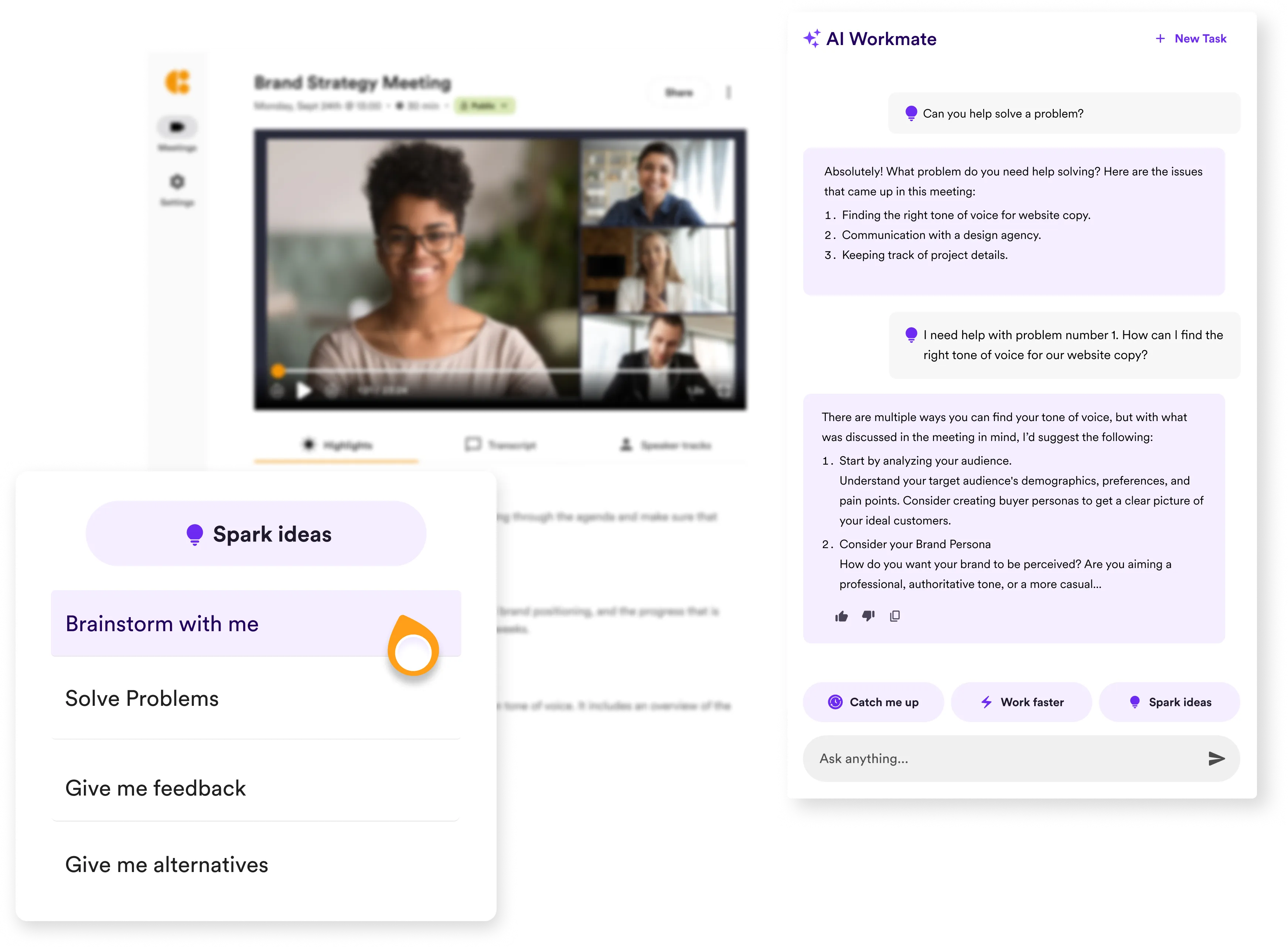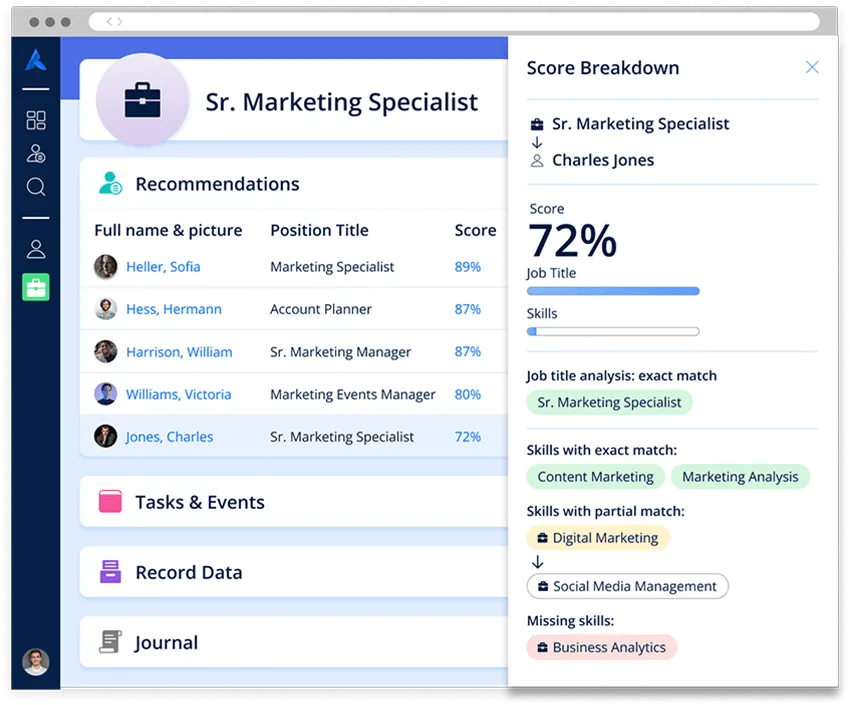How Long Should an Interview Last?

Too short, and you risk missing crucial insights. Too long, and you risk losing engagement and efficiency.
So, what’s the perfect balance in terms of interview duration?
In this guide, we’ll explore how long you should schedule your interviews to be.
What is the Average Length of an Interview at Companies?
Typically, interviews at companies last anywhere between 30 to 90 minutes.
The length often depends on the type of interview and the role being filled.
For instance, a screening call might only last 15 to 30 minutes, where the focus is on clarifying basic qualifications, availability, and general fit. It’s short and to the point—meant to quickly determine whether it makes sense to proceed to a more in-depth conversation.
For in-person or virtual interviews that dive deeper into a candidate’s experience, expect the average length to be around 45 to 60 minutes. This duration strikes a balance between being thorough and respecting the time of both the interviewer and the candidate. In these interviews, you get to understand the candidate’s skills, experience, and their approach to work while also allowing them time to ask their questions.
However, for more senior roles or technical positions, interviews can extend up to 90 minutes or more. These longer interviews often involve multiple components—like technical assessments, problem-solving exercises, or detailed discussions about past projects. In these cases, the extended time allows both the interviewer and candidate to go deeper into the specifics that really matter for a senior or specialized role.
How Much is Too Long for an Interview?

While it's important to be thorough during an interview, there is a fine line between being comprehensive and overextending the conversation. So, how do you know when an interview has gone on for too long?
Generally, interviews that last beyond 90 minutes can be considered excessive, especially if the role doesn’t require deep technical evaluations or multiple interview stages.
When an interview drags on, both the interviewer and the candidate may experience fatigue. This fatigue can lead to a decline in the quality of questions and answers, making the conversation less productive. The candidate might start to feel overwhelmed, which can impact their ability to present themselves effectively. Likewise, the interviewer might lose focus, which can lead to missing key insights or forming inaccurate impressions. This is why keeping interviews concise and targeted is crucial for a successful outcome.
How Long Should You Interview Your Candidates?

The ideal interview length isn’t a one-size-fits-all solution—it depends on the role, the type of interview, and what you’re trying to accomplish.
But let's be clear: there are specific durations that work best for different interview types:
- For phone screenings, aim for 15 to 20 minutes. This is enough to determine whether the candidate meets the basic qualifications and if it makes sense to move forward. Keep it focused—confirm the candidate’s availability, verify key skills, and gauge their interest.
- For first-round interviews, typically held virtually or in person, 45 minutes is ideal. In this timeframe, you can delve into the candidate’s experience, explore their motivations, and assess how they might fit within the team. It also gives them enough time to ask questions about the company and role, which is key for keeping them engaged.
- For technical or task-based interviews, which are common for specialized roles, aim for 60 to 90 minutes. This gives you ample time to present a challenge, observe how the candidate approaches it, and discuss their thought process. However, try not to exceed 90 minutes—anything beyond that tends to lead to fatigue and diminishing returns.
- Final interviews with senior leadership or for executive positions may also require up to 90 minutes, but keep in mind that the key here is depth, not just length. These interviews should focus on strategic thinking, leadership qualities, and cultural alignment.
Make the Most of Your Interviews: Noota
.png)
Interviewing is time-consuming, and when you're juggling multiple candidates, it’s easy to lose focus on what really matters—assessing the candidate properly. This is where Noota, an AI-powered interview assistant, steps in to help streamline the entire process.
- Automated Recording and Transcriptions: don’t ever have to take notes while trying to engage with the candidate. Instead, give your full attention to the conversation, knowing that Noota will capture every detail accurately.
- Data-Driven Insights and Analysis :Noota doesn’t stop at just providing a transcript—it goes a step further by analyzing the content of the interview to extract key points, skills, and competencies. This feature helps you evaluate candidates more objectively, relying on data rather than just memory or first impressions.
- Streamlined Team Collaboration: with Noota, sharing interview insights with your hiring team is seamless. It generates structured reports that can be easily distributed to other decision-makers, ensuring everyone has access to the same information.
Want to automate interview note-taking and get objective insights ? Try Noota for free.
Leverage your Interview Data
AI interview notes, scorecard, follow-up, ATS integration, and more...
Related articles

Forget note-taking and
try Noota now
FAQ
In the first case, you can directly activate recording as soon as you join a videoconference.
In the second case, you can add a bot to your videoconference, which will record everything.
Noota also enables you to translate your files into over 30 languages.

.svg)
.svg)
.webp)

.png)


.svg)
